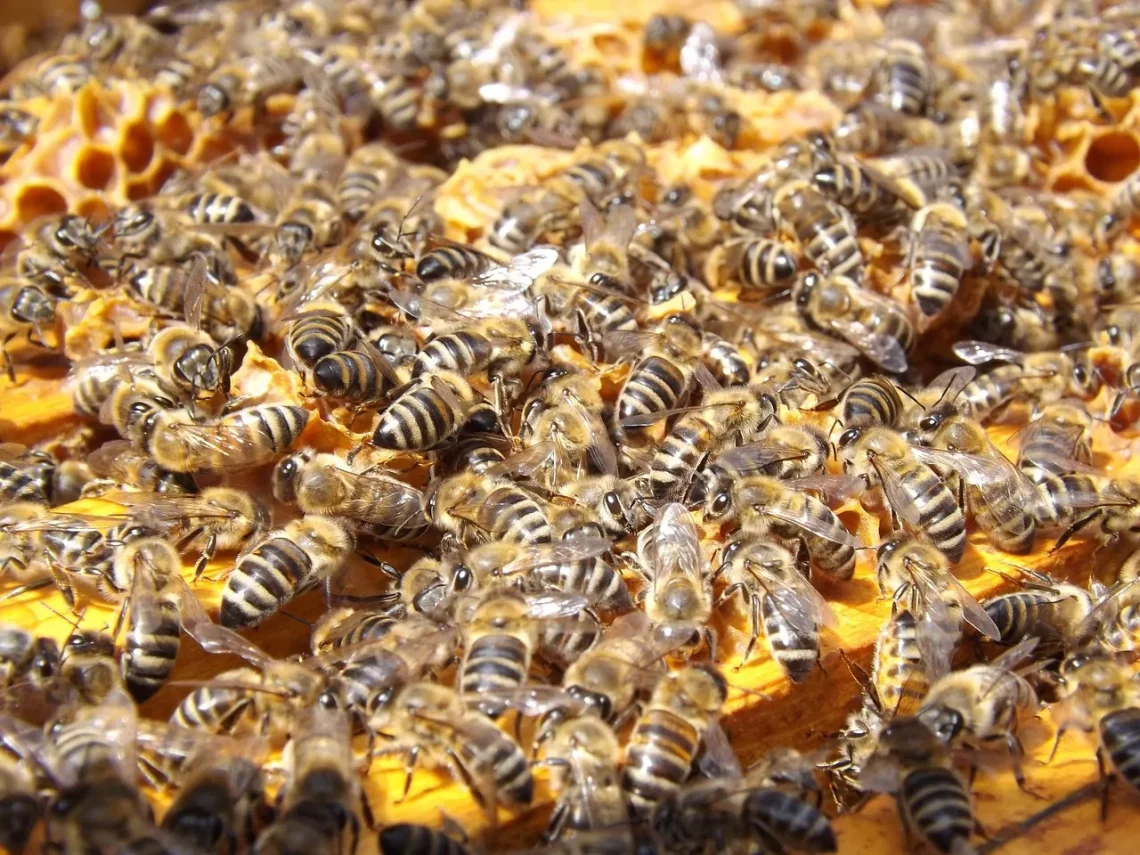
The Sweet Benefits of Honey: Nature’s Golden Elixir
Honey has been cherished for centuries, not only for its delightful sweetness but also for its remarkable versatility and potential health benefits. This golden elixir, produced by bees from the nectar of flowers, is a staple in many cultures worldwide. Its rich history dates back to ancient civilizations, where it was used not just as a food source, but also as a medicine, a preservative, and even an offering in religious rituals. The fascinating process of honey production involves the intricate work of bees, who transform floral nectar into this unique substance through a combination of enzymatic activity and evaporation.
As we delve into the world of honey, we uncover its many forms, from raw and unprocessed to refined varieties. Each type brings its own unique flavor profile and benefits, influenced by the floral source from which it is derived. Beyond its culinary uses, honey has gained attention in modern wellness trends, where it is celebrated for its potential to enhance health and well-being. Whether you’re drizzling it over your morning oatmeal, stirring it into tea, or using it as a natural remedy, honey offers a sweet and nutritious addition to your diet. Its appeal lies not only in its taste but also in its ability to connect us to nature and the environment, reminding us of the vital role bees play in our ecosystem.
The Nutritional Profile of Honey
Honey is more than just a sweetener; it is a complex substance that provides various nutrients and compounds beneficial for health. Composed primarily of fructose and glucose, honey is a natural source of carbohydrates, making it a quick energy booster. In addition to these sugars, honey contains trace amounts of vitamins and minerals, including B vitamins, vitamin C, calcium, magnesium, and potassium.
One of the standout features of honey is its high antioxidant content. Antioxidants are vital for combating oxidative stress in the body, which can lead to chronic diseases. The presence of phenolic compounds and flavonoids in honey contributes to its antioxidant properties, offering potential protection against cellular damage. Research has indicated that the darker the honey, the higher its antioxidant content, making varieties like buckwheat honey particularly valuable.
Furthermore, honey exhibits antimicrobial properties due to its natural acidity and hydrogen peroxide content. This makes it a popular choice for soothing sore throats and as a topical treatment for minor wounds and burns. The combination of these beneficial nutrients and properties makes honey an attractive addition to a balanced diet.
To incorporate honey into your daily routine, consider using it as a natural sweetener in your beverages, smoothies, or baked goods. It can also be drizzled over yogurt, added to marinades, or used in salad dressings to enhance flavor while providing health benefits. However, it’s essential to remember that while honey is a healthier alternative to refined sugars, moderation is key to maintaining a balanced diet.
Honey in Traditional Medicine
Throughout history, honey has been utilized in traditional medicine across various cultures, revered for its healing properties. Ancient Egyptians used honey in wound care and as a natural preservative, while in Traditional Chinese Medicine, it has been employed to soothe coughs and digestive issues. Its versatility in medicinal applications stems from its natural properties, which can aid in various health concerns.
One of the most common uses of honey in traditional medicine is for its soothing effects on the throat. When mixed with warm water or herbal teas, honey can provide relief from irritation and cough, making it a go-to remedy during cold and flu season. Its viscous texture coats the throat, reducing discomfort and acting as a natural cough suppressant.
In addition to its throat-soothing properties, honey is often used for its potential wound-healing abilities. The antimicrobial properties in honey help to prevent infection, while its natural sugars draw moisture away from wounds, promoting a conducive healing environment. Manuka honey, in particular, has gained significant attention for its unique antibacterial properties, making it a popular choice for topical applications.
Moreover, honey has been explored for its potential benefits in digestive health. It acts as a prebiotic, nourishing the beneficial bacteria in the gut. This can aid in digestion and contribute to overall gut health. Some individuals also use honey to alleviate symptoms of gastrointestinal discomfort, such as bloating or indigestion, although scientific research on these effects is still evolving.
It is important to note that while honey holds promise in traditional medicine, it should not replace professional medical advice or treatment. Those with specific health concerns should consult a healthcare provider for appropriate guidance.
Choosing and Storing Honey
When it comes to selecting honey, the variety and quality can significantly impact its flavor, texture, and health benefits. With countless options available, it’s essential to understand the differences between raw, processed, and flavored honey.
Raw honey is often considered the purest form, as it is extracted from the hive and minimally processed. It retains its natural enzymes, antioxidants, and nutrients, making it a popular choice for those seeking the maximum health benefits. On the other hand, processed honey may undergo filtration and pasteurization, which can strip away some beneficial components. While it is still safe to consume, it may not offer the same health advantages as raw honey.
When shopping for honey, look for products labeled as “100% pure” or “raw” to ensure you are getting high-quality honey. Additionally, consider local honey options, as they can provide unique flavors influenced by local flora and may also support local beekeepers and ecosystems.
Proper storage is crucial to maintaining honey’s quality. Honey should be stored in a cool, dry place, away from direct sunlight. It is best kept in a tightly sealed container to prevent moisture absorption and crystallization. While crystallization is a natural process that can occur over time, it does not indicate spoilage. If your honey crystallizes, gently warm the container in a water bath to return it to its liquid state without overheating.
In summary, choosing high-quality honey and storing it correctly can enhance your experience and allow you to enjoy its sweet benefits for longer.
Creative Uses of Honey in Everyday Life
Honey’s versatility extends beyond its role as a sweetener; it can be creatively incorporated into various aspects of daily life. From culinary applications to beauty treatments, honey can enhance both flavor and function, making it a valuable ingredient in your household.
In the kitchen, honey can be used in myriad ways. It serves as a natural sweetener for beverages such as tea, coffee, and smoothies. You can also replace refined sugars in baking recipes with honey, adjusting the liquid ingredients accordingly. Honey pairs beautifully with a variety of foods, from drizzling over pancakes or waffles to mixing into salad dressings and marinades. Its unique flavor profile can elevate dishes and add a touch of natural sweetness.
Beyond culinary uses, honey has found its way into beauty routines and skincare products. Its natural moisturizing properties make it an excellent ingredient for homemade face masks and scrubs. You can create a simple honey face mask by mixing honey with yogurt or mashed avocado, providing hydration and nourishment for the skin. Additionally, honey can be used as a natural lip balm, soothing dry lips and adding a hint of sweetness.
For those interested in natural remedies, honey can also play a role in self-care. Adding honey to a warm bath can create a soothing and fragrant experience, while its antimicrobial properties make it a popular choice for DIY skincare. However, it’s crucial to perform a patch test before applying honey to your skin to ensure you do not have an allergic reaction.
In conclusion, honey offers a plethora of creative uses that can enhance both your culinary experiences and personal care routines. By incorporating this golden elixir into your everyday life, you can enjoy its sweet benefits while exploring its versatility in various applications.
**Disclaimer: This article is for informational purposes only and should not be considered medical advice. For any health concerns or conditions, please consult a qualified healthcare professional.**




